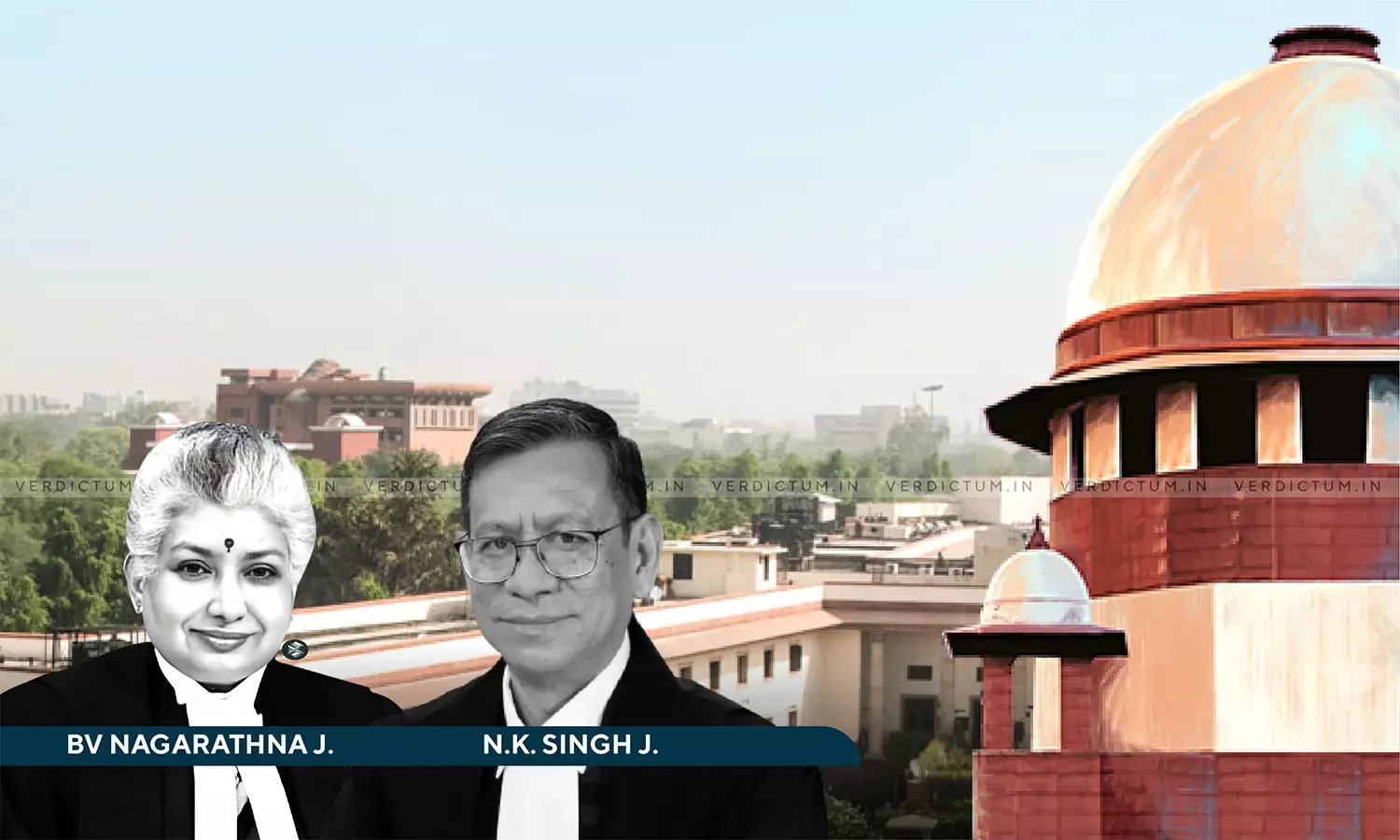HC Has Balanced Right To Fair Trial Of Accused And Right To Privacy Of Victim: SC Upholds Directions To Give Copies Or Permit Inspection Of Electronic Evidence To Accused
The Supreme Court upheld the directions given by the Calcutta High Court balancing the rights of the Accused in the context of the supply of electronic evidence for fair trial and the minor victim’s right to privacy and right to equality and equal protection of the law.
The Court also said that the Sessions Court could always issue ancillary and incidental directions as regards the supply of documents to the Accused.
The Bench of Justice BV Nagarathna and Justice N.K. Singh observed, “On a reading of these directions in light of the submissions made by learned counsel for the respective parties, we find that the High Court has balanced the rights of the petitioner-accused as well as the rights of the minor victim in the context of a free and fair trial as far as the petitioner-accused is concerned and the right to privacy and right to equality and equal protection of the law as far as the minor victim is concerned…However, it is necessary to bear in mind what has been also stated by this Court in P. Gopalakrishnan in paragraph ‘50’. That the Court could issue suitable directions to balance the interest on both sides. Having regard to the facts of this case, the Sessions Court could always issue ancillary and incidental directions with regard to making available the documents for the purpose of inspection of the petitioner-accused, during the course of the trial and as and when requested by the petitioner.”
Senior Advocates Meenakshi Arora, Siddhartha Dave and Huzefa Ahmad appeared for the parties.
The Accused filed the present Special Leave Petition challenging the order passed by the Calcutta High Court in an application filed against the order passed by the Sessions Judge denying the supply of documents including electronic records in terms of Section 207 of the Code of Criminal Procedure, 1973.
The case of the prosecution was that certain offences under Sections 66E, 67, 67A, 67B, 84B of the Information Technology Act and Sections 120B, 354D, 385 and 506 of the Indian Penal Code, 1860 and Sections 4 and 8 of the Protection Of Children from Sexual Offences Act, 2012 (‘POCSO Act’) were committed against the victim who was minor at the time of the offence. The hard disk, sought by the Accused, contained screenshots taken from mobile phone, WhatsApp, chat history and the like.
The Apex Court relied on the landmark judgment in the case of P. Gopalkrishnan v. State of Kerala (2020), in which the Court balanced the fundamental rights of the accused under Article 21 of the Constitution of India vis-a-vis a fair trial and the right to privacy of the victim both under Article 14 as well as Article 21 of the Constitution. In this case, the case of the prosecution was, that the Accused was a well-known and popular cine artist. The victim was also a well-known actress in the Malayalam Film Industry. It was alleged that the accused maintained enmity towards the victim, believing her to be responsible for the breakdown of his matrimonial relationship. To retaliate, he allegedly conspired with the other Accused to abduct the victim, to sexually abuse her, to record the acts of sexual abuse and to blackmail her using the video graphed materials.
The Court in this judgment had observed, “If the accused or his lawyer himself, additionally, intends to inspect the contents of the memory card/pen-drive in question, he can request the Magistrate to provide him inspection in court, if necessary, even for more than once along with his lawyer and IT expert to enable him to effectively defend himself during the trial. If such an application is filed, the Magistrate must consider the same appropriately and exercise judicious discretion with objectivity while ensuring that it is not an attempt by the accused to protract the trial. While allowing the accused and his lawyer or authorised IT expert, all care must be taken that they do not carry any devices much less electronic devices, including mobile phone which may have the capability of copying or transferring the electronic record thereof or mutating the contents of the memory card/pen-drive in any manner. Such multipronged approach may subserve the ends of justice and also effectuate the right of accused to a fair trial guaranteed under Article 21 of the Constitution.”
The Court, therefore, upheld the directions given by the High Court, which are as follows: a)Legible copies of documents shall be supplied to the accused which were directed to be supplied and did not have any scope of disclosing the identity of the minor victim; b) Copies of documents, if any, available in the electronic medium, which do not have any scope to disclose the identity of the minor victim would also be supplied to the accused, if the learned Court find that copying the drive would not damage the original; c) The accused would be permitted to inspect the electronic evidence along with his learned advocate and I.T. expert, if he chooses to engage such an expert for such purpose and d) After supply of such copies and/or inspection of documents as referred to above, the Trial Court shall fix a date for consideration of charge and proceed thereafter.
Accordingly, the Court did not interfere with the impugned order and disposed of the petition.
Cause Title: Anish Loharuka v. The State of West Bengal
Appearances:
Senior Advocates Meenakshi Arora, Siddhartha Dave, Huzefa Ahmad, AORs Manish Kumar Gupta, Pallavi Pratap, Astha Sharma, Advocates Neema, Nanakey Kalra, Rajib Mullick, Mantika Haryani, Ripul Swati Kumari, Rashmi Singh and Muskan Surana.




